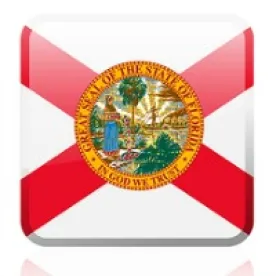In May 2021, the Florida legislature passed Senate Bill 1120 (Florida Robocall Bill), which updates the state’s existing telemarking laws. The proposed changes parallel certain provisions in the federal Telephone Consumer Protection Act (TCPA), including:
-
Requiring prior express written consent for calls made using an automated selection and dialing system; and
-
Creating a private cause of action for any violation of the do not call provisions.
The Florida Robocall Bill requires express written consent for telephonic sales calls using an automated system for the selection or dialing of telephone numbers. While the term “automatic telephone dialing system” (ATDS) is defined under the TCPA as “equipment which has the capacity to store or produce telephone numbers to be called, using a random or sequential number generator; and to dial such numbers,” the Florida bill does not further define an “automated system for the selecting or dialing telephone numbers.” 47 U.S.C. § 227(a)(1). Given the use of the phrase “selecting or dialing,” it does not appear that a lack of random or sequential generation would provide a defense to claims that a particular system is covered by the Florida Robocall Bill. Moreover, the use of the term “selecting” could be interpreted to include dialers that select, but do not dial, numbers to be called, such as “progressive” dialers.
The existing Florida Do Not Call Act (FL ST § 501.059) prohibits telemarketing callers from making sales calls using an automated system to select or dial telephone numbers unless the following exemptions apply:
-
The call is made in response to the consumer initiating the call;
-
The called numbers are not listed on the Do Not Call List; or
-
The calls relate to goods or services that the customer previously purchased.
Section 1 of the Florida Robocall Bill removes these exemptions and instead requires prior express written consent from consumers before making any telephonic sales calls via phone, text, or voicemail using an automated system for selecting or dialing telephone numbers. The new bill defines “prior express written consent” in a manner similar to the TCPA by requiring:
-
an electronic signature; and
-
informing consumers that their consent is not required as a condition to purchase goods or services.
The Florida Robocall Bill also creates a rebuttable presumption that any sales call made to a Florida area code is intended to be received by a Florida resident.
Significantly, the existing Florida Do Not Call Act does not include a private right of action, but the Florida Robocall Bill adds a private cause of action for violations, allowing aggrieved consumers to:
-
Obtain an injunction;
-
Recover the greater of their actual monetary damages or $500; and
-
Authorizes the court to increase damages by up to three times for any willful or knowing violations.
The Florida Telemarketing Act (FL ST §§ 501.601 to 501.626) determines the licensure, identification, calling times, and recordkeeping requirements for commercial callers, as well as exemptions from the requirements.
Section 2 of the Florida Robocall Bill makes changes to the Florida Telemarketing Act (FL ST §§ 501.601 to 501.626), including:
-
Reducing the permissible sales call times to between 8 a.m. and 8 p.m. in the consumer’s time zone;
-
Prohibits a sales caller from calling a consumer more than three times over a 24-hour period about the same subject matter;
-
Prohibits the use of technology to deliberately conceal the identity of the caller, which carries second-degree misdemeanor penalties.
Unlike the changes to the Florida Do Not Call Act, the Florida Robocall Bill does not add a private right of action for violations of the Florida Telemarketing Act.
The Florida Robocall Bill is yet to be presented to Gov. DeSantis. Once presented, the Governor has 15 days to veto the bill before it automatically becomes law. If approved, the bill will become effective on 1 July 2021. The Bill stands to serve as a template for other states to pass similar telemarketing legislation, particularly in light of the U.S. Supreme Court interpretation of automated telephone dialing system in Duguid v. Facebook. Companies making automated sales calls need to consider ways to preemptively ensure compliance and prevent risks stemming from similar state statutes, as well as the TCPA.
Sebastian Crisan also contributed to this article.




 />i
/>i

